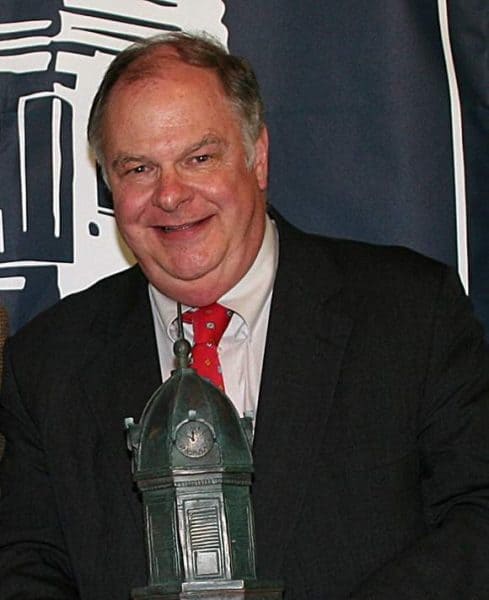‘Greek Gods’ hosts speak out about the Machine
October 4, 2018
A panel was held to discuss AL.com’s Reckon podcast, “Greek Gods,” which discusses the Machine at The University of Alabama and its ties to the Student Government Association (SGA) and politics in Alabama on Tuesday night. It was held as a part of News Engagement Day, hosted by the department of journalism and creative media.
The podcast included four episodes to discuss different aspects of the Machine and its impact, including background information on the secret society, varying perspectives of people involved, the role of race on campus and in the Greek system and what the Machine teaches students about real world politics.
Chris Roberts, associate professor of journalism and creative media, led the discussion and said SGA was invited to the panel.
“The other people supposed to be on this panel are not here tonight,” Roberts said. “We invited the SGA to show up, they said no. That’s part of the charm.”
The podcast is hosted by John Archibald and Amy Yurkanin, who both spoke at the panel. Archibald attended the University in the 1980s and discussed his experience with the Machine while he was a student. Archibald currently works as a columnist for the Birmingham News and AL.com.
“People are always like, ‘you’re 55 years old and you’re still sitting here talking about whatever happened in college with SGA and this Machine that you talk about,’” Archibald said. “There’s so many people who come through this college and this whole system and situation, on both sides of it, all sides of it, and they sort of feel the same way. Everything I’ve ever written about the Machine, it’s always been huge.”
Yurkanin works as a senior reporter for AL.com. She did not attend the University and said she was surprised to learn about the Machine, particularly when learning of the election of John Merrill for SGA president in 1986, which inspired her to create the podcast.
“I was surprised when they were telling me stories. Students breaking into offices and threats and things like this, none of this I can recall happened at the University of Texas or UNC when I was there,” Yurkanin said. “I don’t think people took SGA as seriously there, or there was no kind of secret society that invested in the outcome of elections like this.”
Merrill ran as an independent for SGA president, meaning he did not have the Machine’s support. Archibald said members of the Machine broke into Merrill’s office during his time as SGA president. Merrill is the current secretary of state for Alabama.
According to the podcast, many of Alabama’s current politicians and journalists were involved in the Machine or opposed it during their time at Alabama.
“So many of Alabama’s most well-known politicians over the years have come through this system and it’s not just the Machine, it’s either the Machine or an opposition to the Machine,” Archibald said. “It’s created some of the greatest politicians in this state and this country on both sides of it, and it has created some of the best journalists in this country too. I really think that this crucible at The University of Alabama, this Machine where politics is learned, where dirty tricks are learned, it has a profound effect on our politicians today and our way of life.”
John Hammontree, an opinion and commentary writer for AL.com, also worked on the podcast. He graduated from the University in 2010 and spoke at the panel.
Hammontree discussed the role of race on campus and in the Greek system. He said the Machine has evolved throughout its history to maintain the status quo on campus, using current issues and events to further spread their sphere of influence and maintain power.
“My sort of grand theory about the machine is that they have sort of evolved as much as they need to over the years,” Hammontree said. “It’s all about how much you have to change and evolve in order to maintain your power on campus, and I think the Machine has shown that it’s capable of evolving in order to keep people in power.”
In 1976, Cleo Thomas became the first African-American SGA president and the first African-American to defeat the Machine. Hammontree said Thomas was able to do this in part because he was able to earn the votes of sororities, who were not allowed to participate in the Machine at the time. Following Thomas’ victory, women were allowed to join the Machine and have grown to outnumber men by a five-to-one margin today.
Archibald said the Machine’s influence reflects current political involvement nationally.
“The only reason the Machine is able to wield any influence in this community is because they’re the only ones that care largely except for a small group of people who challenge them,” Archibald said. “In some ways, that’s really the same thing that happens in the real world. For a voting bloc to be defeated you have to give other people a real reason to vote, and I think that’s sort of what happens every time an independent candidate wins.”
Yurkanin said she thinks it’s critical to be involved in politics on the city or campus level.
“I think the power of the Machine has to do with the fact that it can feel like a lot of people, but it really isn’t, it’s still a minority of the student population,” Yurkanin said. “I would hope independents on this campus don’t get discouraged because I think they’re kind of this sleeping giant and the more people get involved, the less influential the Machine would be.”











